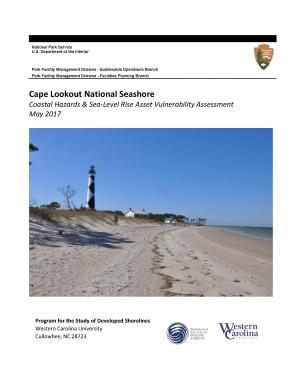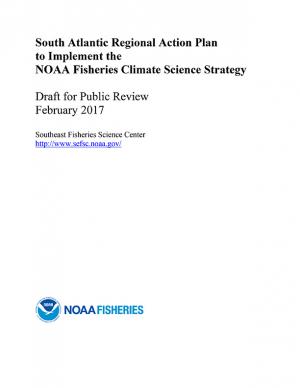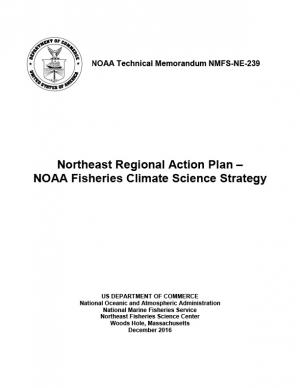Access a range of climate-related reports issued by government agencies and scientific organizations. Browse the reports listed below, or filter by scope, content, or focus in the boxes above. To expand your results, click the Clear Filters link.
The protocol developed and used in this report is unique in that it is an asset-level assessment of the vulnerability of infrastructure to multiple coastal hazards and climate change factors (e.g., erosion, flooding, storm surge, sea-level rise, and historical flooding) over a 35-year planning horizon (2050). The protocol was applied to all buildings and roads in Cape Lookout National Seashore; the results are summarized in the report.
This draft Regional Action Plan in support of NOAA Fisheries Climate Science Strategy helps communicate a regional vision for climate-related science in the South Atlantic, providing a framework for scientists and managers to prioritize and accomplish research on climate-related impacts to marine and coastal ecosystems. It promotes scientists working with partners and the management community to construct management approaches that ensure the development of science-based strategies to sustain marine resources and resource-dependent coastal communities in a changing climate. Highlights include establishing a NOAA Fisheries South Atlantic Climate Science Team, expanding scientific expertise and partnerships, conducting vulnerability assessments for South Atlantic species, and drafting a South Atlantic Ecosystem Status Report. The draft was available for public comment through March 24, 2017; the Plan will be finalized in summer 2017.
The Northeast Regional Action Plan was developed to increase the production, delivery, and use of climate-related information to fulfill the NOAA Fisheries mission in the region, and identifies priority needs and specific actions to implement the NOAA Fisheries Climate Science Strategy in the Northeast over the next three to five years. The U.S. Northeast Shelf Large Marine Ecosystem supports a number of economically important fisheries and a wide variety of other important marine and coastal species, from river herring to marine mammals and sea turtles. The region has experienced rising ocean temperatures over the past several decades, along with shifts in the distribution of many fish stocks poleward or deeper. Other expected climate-related changes include sea level rise, decreasing pH (acidification), and changing circulation patterns that could impact marine resources, their habitats, and the people, businesses, and communities that depend on them.






